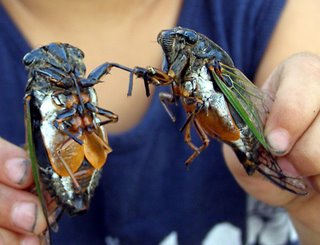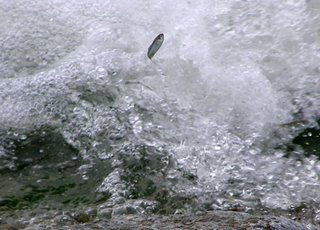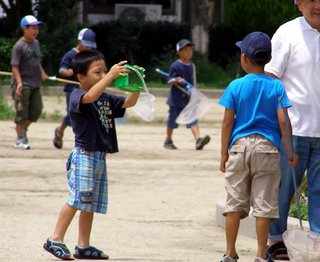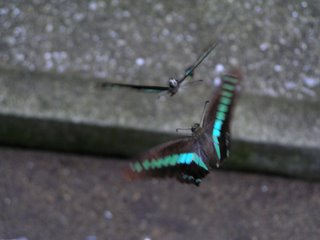Yesterday a group of my first year students approached me after class with a question. They wanted to know about the connection between New Year, the number of times the watch-night bell rings, and Christianity.
I am sure my blank stare was not the answer they were hoping for.
I asked where the question came from. They told me they had to write a report about the topic for one of their classes. I asked what the course was, and they told me it was called 外国文化 (foreign culture). It was taught by a Japanese professor, and this report was their final assignment. (Their only assignment, to be accurate.) Furthermore, it turned out that they had not been assigned any reading material, or references to reading material, which could shed light on the question they were supposed to be writing about. All they had was a handout from the professor, with the questions on it. Perhaps the professor gave the answers in lectures the students either did not attend or slept through, both of which are normal responses to lectures here, as far as I have seen.
I asked the students what a watch-night bell was, exactly, but they weren't sure, at least not in the 'foreign' context. They were hoping I would tell them. I asked them where the word came from, and it turned out to be a translation of 除夜の鐘, which was the word their professor had used. (The professor did not use English, so the students had to translate it to ask me the question.) My dictionary told me that a 除夜の鐘 is a temple bell, rung 108 times at New Year, in Japan, and used the English word watch-night bell, as the students said. As far as I knew it had nothing to do with Christianity or 'foreign culture' and I wondered if the professor actually meant church bells. It seemed possible. But were church bells rung at New Year? I didn't think so, but didn't really know. You do not hear church bells often in New Zealand.
I told the students that I'd never heard of New Year having any connection with Christianity. I asked them in which country this watch-night bell was rung at New Year for a specific (but unspecified) number of times, and they looked at me as if I were mad.
"English-speaking foreign countries," they said.
"Well, I've never heard of it, and I'm from an English-speaking country," I told them, feeling rather defensive.
My students were worried and amazed at my ignorance.
While they were discussing what to do next, I overheard them agreeing that I was obviously clueless and they should consult their friend Koh-chan, who had, they said, become so good at English that his Japanese had become terrible. They didn't know I could understand what they were saying. I listened as I packed up my things, and puzzled over their acceptance of the idea that a person could only hold one language in their head at a time, and at how they thought that being a good speaker of English conferred knowledge of obscure 'facts' about foreign cultures such as these ones about Christianity, New Year and the watch-night bell. Also, if they thought that speaking English well made their friend so clever, did that mean that they thought I was a rare, stupid English speaker? Or was it because I was a native speaker that I was stupid? Was it only Japanese English speakers who were clever and knowledgeable?
Rather than get sidetracked by bringing up the topic of my shocking stupidity, I suggested that we visit the teachers' room, where we could consult a few of the foreign teachers from countries other than New Zealand, which has (as everybody knows) no culture to speak of. They agreed, but reluctantly, and more because they didn't know how to say no politely than because they really wanted to come. They had lost faith in foreign teachers, and it was my fault.
The first teacher we saw as we were going down the corridor was Michael, who is English and knows everything. (If he doesn't, he makes it up.)
"Mike!" I called, trailing hesitant students behind me like a comet tail. "We have a question about British culture!"
"Ooh, British culture!" said Mike. A gleam appeared in his eye and he turned to the students.
"WE DRINK TEA!" he told them, loudly and slowly, holding up an imaginary teacup with his little finger sticking out. "TEA! WE LOVE TEA! ALL OF US! IT'S BECAUSE WE'RE BRITISH! WE DRINK TEA ALL THE TIME! WITH SCONES AND CUCUMBER SANDWICHES! WE NEVER STOP DRINKING TEA! WE CAN'T LIVE WITHOUT OUR TEA! WE NEVER, EVER DRINK COFFEE!"
"Michael!" I snapped, whacking him on the shoulder. "Stop it! This is not a tea question."
The students giggled nervously.
"Oh, all right," Mike said. "What do you want to know?"
But he didn't know the answer to the watch-night bell question, and when he started looking thoughtful and saying, "Ooh! I know! It's probably something to do with ... " (his prelude to making something up) "... SHIPS!" I thanked him hastily and hurried off with my entourage to ask someone else. But it turned out that nobody knew what it was, or knew of any connection between New Year and Christianity.
In the end I gave up, and sent the students off, apologizing for the foreign teachers' collective ignorance about our own cultures. I also suggested that they might try looking it up on the Internet.
When I got home, I looked it up on the Internet myself, and found this:
Many Christians, particularly in the Methodist tradition, gather on New Year's Eve for what are called Watch Night services. During these sometimes three hour long services, hymns are sung and prayers offered in a rededication to God, as participants watch for the new year. John Wesley wrote and adapted services for Watch Night celebrations.
So it appears there is a Watch Night, which might be what the professor meant, but I couldn't find any reference to a watch-night bell which must be rung at New Year a specific number of times for specific religious reasons, outside of the Japanese or Korean context. (Am I missing something obvious? Or even something not so obvious?)
I guess this must be one of the essential elements of foreign culture that we foreigners (at least at the university) all managed to miss out on, due to our collective stupidity. No wonder they won't let us teach foreign culture classes. We are far too ignorant.
Incidentally, Mike's tea comments may seem odd, but in fact they are perfectly understandable. What happens here is that Japanese professors of 'foreign culture' (and other knowledgeable, 'intellectual' people), if they hear you are from England, almost always respond with reference to the fact that English people drink tea and don't like coffee. "Do you drink tea?" they will ask, gleefully, and will tell you, knowingly, that British people are not like Americans, who (as everybody knows) drink a lot of coffee and don't like tea. English people drink tea, a lot. They LOVE tea! This is the most important thing every intellectual person knows about British culture and, quite frequently, the only thing. It is also something that British people get very, very tired of hearing, especially if they are coffee drinkers.
So Mike was expecting a question about tea, and responded accordingly.
His response was relatively mild. I have another English friend who practically explodes if you so much as mention tea and British culture in the same breath, but I think Mike has given up on the whole thing. Or perhaps he hasn't given up but is trying another approach. I haven't asked. I only know he tends to get very, very sarcastic (in a friendly way) about tea. Perhaps he is trying to turn the tea stereotype into something so ridiculous nobody will take it seriously. If so, his plan is backfiring, because sarcasm does not cross the cultural divide very well, if at all. It does not matter how outrageous his tea 'facts' are. They are taken completely seriously.
But I am wondering how my students got on with their report. Can any of you foreigners hazard a guess as to what the professor was talking about?

























































